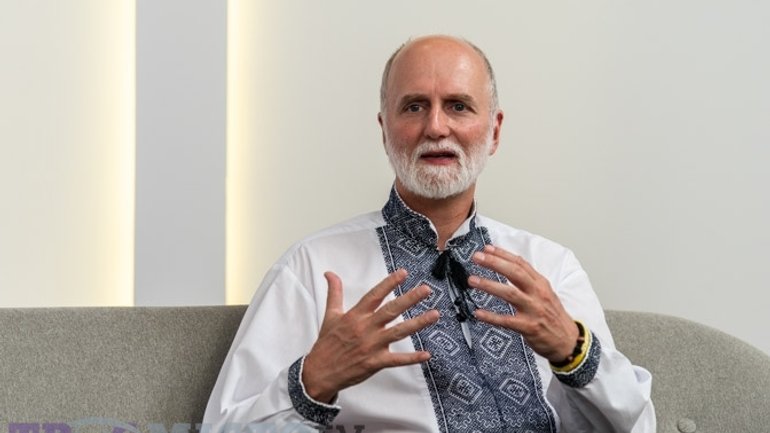Metropolitan Borys Gudziak: Pope's rhetoric about the war is getting tougher

Metropolitan Borys said this in an interview with Tvoemisto.tv.
"The Pope is not a naive pacifist. From the rest of the world, it is difficult to see in detail and understand the problems of Eastern Europe and Russia. I think he is guided by the Gospel truths and grows in understanding because his rhetoric becomes clearer in condemning atrocities. I think the Pope understands that there is a sin behind this," the Metropolitan said.
Yes, war is perhaps the greatest sin, because it violates almost all of God's laws, cripples lives, and takes them away from thousands, and sometimes millions. Therefore, the paradox is that the Russian church leadership supports this sin, at least at the level of public statements and sermons, Metropolitan Borys Gudziak notes.
"It is difficult to imagine how to encourage them to change this behavior, to change this way of thinking, but sooner or later it must happen. For example, no one could have imagined that the Germans would follow the path they took in the 30s. In 1940, the Germans could not imagine what awaits them in 1944 and 1945. In the end, Germany remains in a position of remorse and an attempt to understand how this could have happened in a civilization that has developed sciences, brought up Nobel Prize winners, and developed literature, art, and classical music. And here is such a terrible chauvinistic ideology, which, perhaps, will forever remain a stain on German historical memory and identity," His Eminence believes.
According to him, there are almost 300 bishops in Russia, but none of them spoke out clearly against the war. Also, the Russian Orthodox Church has about 25 thousand clergymen – priests, and deacons, of which only 293 signed a statement against the war, that is, about 1%.
In response to the question of why the Pope is going to Russia, since this will be a precedent – no head of the Vatican has visited there before, and what will be the result, the UGCC Metropolitan adds:
"Unfortunately, this society is sick, it has a pathological defect. How this will happen, and whether the pope's contacts with Russians in Russia may affect this, there is nothing to say. But anyone who is interested in this problem should understand that we are dealing with a moral illness that cannot be cured just like that.".









